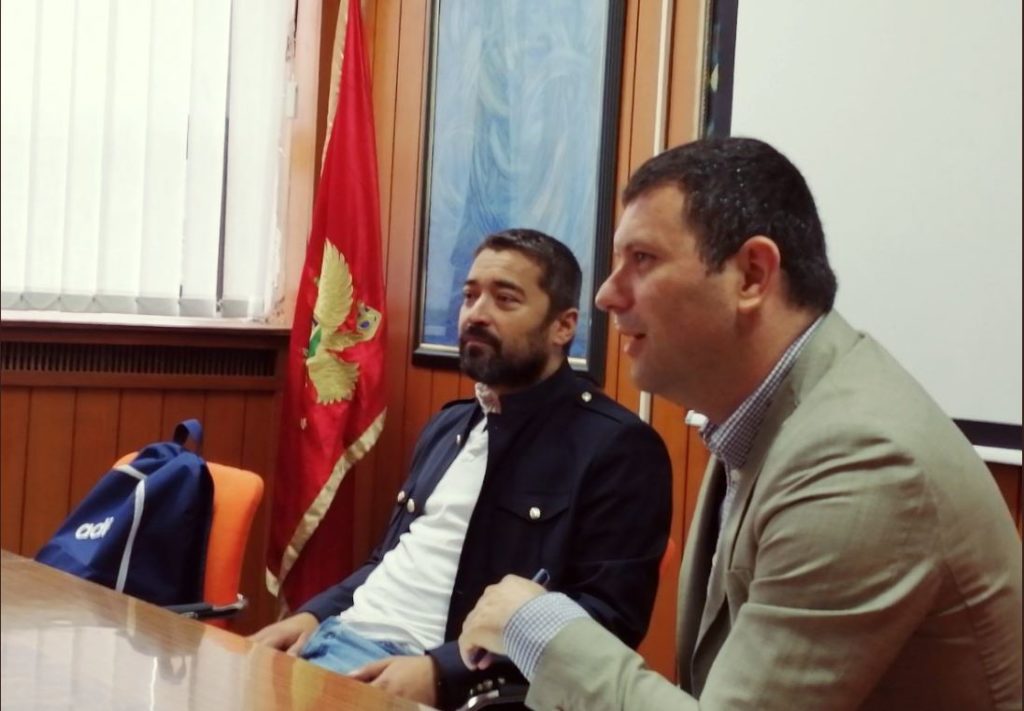The EU Info Centre, in cooperation with the Centre for Geopolitics of the Faculty of Philosophy in Niksic, organised a lecture by the famous Croatian historian, and civic and political activist, Dr. Dragan Markovina. In the lecture: The European Idea Today: Thirty Years of Post-Communist Transition, Markovina looked at the basic elements of the European Idea in the past thirty years. The conversation with students was also an opportunity to look at many other issues, such as: the future of the communities of the post-Yugoslav area, the revision of the past, the culture of memory, and the process of modernisation of post-communist societies.
Dr Markovina’s lecture marked thirty years since the fall of the Berlin Wall, and the relations of the political elites of the former State towards this event. Markovina assessed that Europe has gone through different stages over the past three decades and that its transformation has significantly influenced the attitude towards the countries of the region. In this context, he expressed concern about strengthening the political ideas by trying to transform the model of the organisation of the European Union. The Croatian professor; therefore, expressed concern about the original values of the European idea, such as: human freedoms, the respect for minority rights, equality, and solidarity. Markovina thinks that these fundamental values are endangered by policies that have been narrated over the past five years, and which can primarily be recognised as an attempt to bring economic and market principles into a neoliberal community in which the ideas of freedom, equality and diversity will remain in the second plan. Markovina argued that precisely because of these political forces, the future of the European idea is threatened, and that this will have great consequences for all the countries in the region.
During the lecture, and later on during the conversations with students, Markovina referred to the thesis on the disapproved expectations of the countries of the region towards Europe. According to him, these expectations are undoubtedly frustrating because Europe itself has undergone a huge transformation, but that the role of the countries of the region should not be minimised. Markovina said that these countries are trying to resist the processes of political and economic transition in every way they can, since they are unwilling to adapt the elements of the modernisation of society to the given circumstances and the current political moment.
There were talks on the past elections for the European Parliament, the attitude of the European parties towards the region, but also about one of the most important issues of the post-communist transition of the region-attitude towards the past and the revision of the historical processes. Markovina stated that the need for the collapse of the existing culture of memory and the definition of new narratives of the past are a major problem for all of the communities created in post-Yugoslav area. He assessed that, in this segment, all of the societies of the region have lost their pace with the modernisation processes that are the only way to overcome the accumulated social and cultural challenges of the countries in this region.

